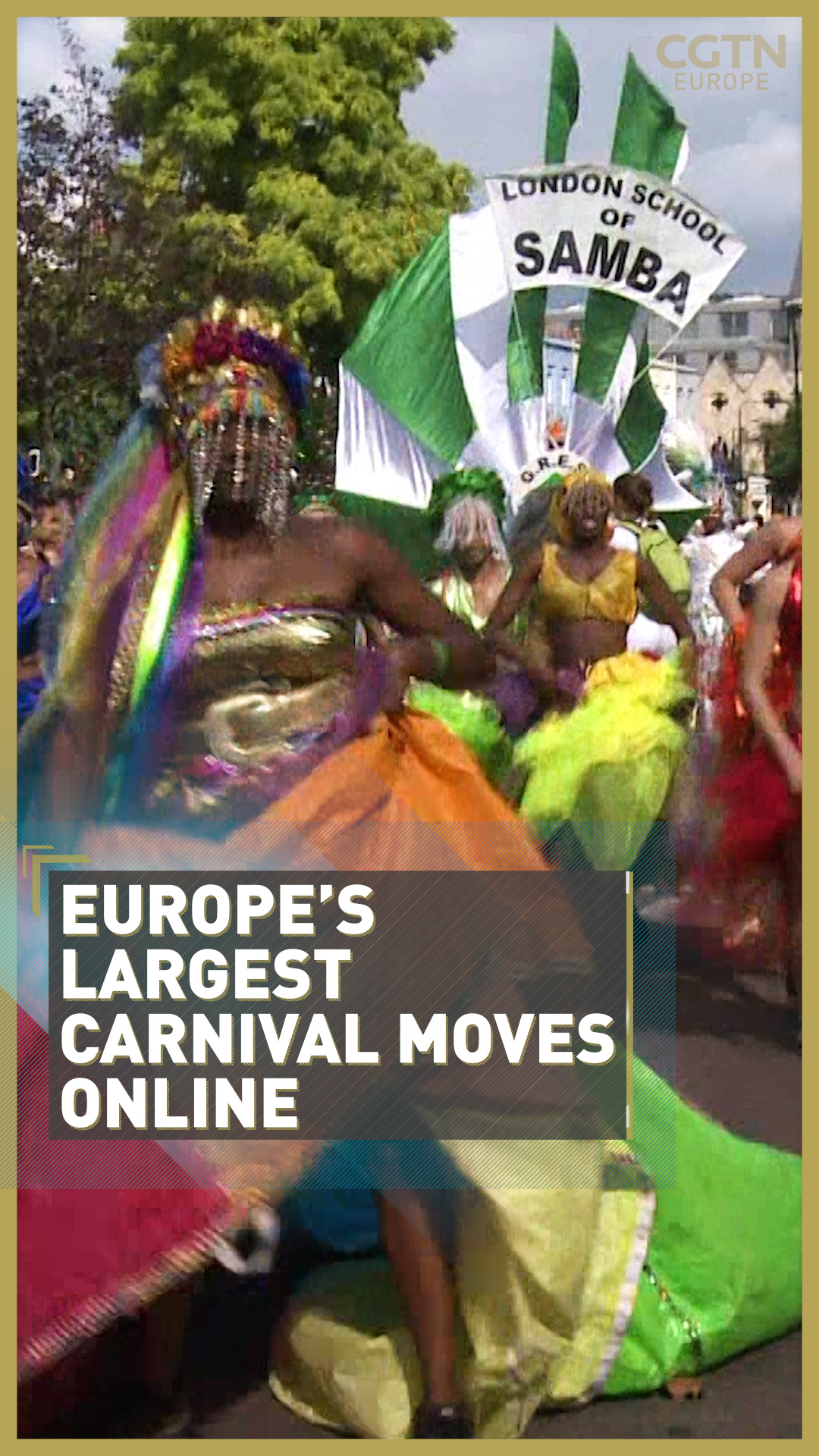01:20

Notting Hill Carnival is moving online for the first time in its 54-year history because of COVID-19.
It is one of the world's largest carnivals, second to only Brazil's Rio Carnival, with around a million people participating every year.
Instead of parades, participants can now live streamed concerts, events and even an online parade from their homes.
Samsung, a sponsor of this year's carnival, has also produced an online film to mark the celebration, and Spotify has also created podcasts and playlists for the event.
The festival is in honor of the UK's large Afro-Caribbean population and was started in 1966 because of the racism that immigrants experienced in post-WW2 England.

Participants can spend up to a year on their elaborate costumes. /Reuters/
Participants can spend up to a year on their elaborate costumes. /Reuters/
Darcus Howe, a political activist and broadcaster at the time, reportedly said:
"If there weren't race riots in Notting Hill I don't believe that we would have had the Notting Hill Carnival. If it wasn't for the murder of Kelso Cochrane, Carnival wouldn't have happened."
Kelso Cochrane was an aspiring lawyer and carpenter who was living in Notting Hill in the 1950s.
He was murdered in 1959, 7 years before the first festival, in a racially motivated attacked.
This year's carnival is also taking place during heightened awareness of modern-day racial inequalities in England.
The UK's Black population is disproportionately affected by COVID-19, and organizations like Black Lives Matter (BLM) are bringing awareness to the over-policing of the country's BAME population.

The Carnival is held in Notting Hill because it had one of the largest Afro-Caribbean communities in London when it started. Now, only 19.5% of the neighbourhood's population is Black, according to the 2011 census. /Reuters/
The Carnival is held in Notting Hill because it had one of the largest Afro-Caribbean communities in London when it started. Now, only 19.5% of the neighbourhood's population is Black, according to the 2011 census. /Reuters/
"I feel really gutted, it's really sad, because it's a huge thing that we do every year," said Cherelle Braithwaite. She is one of the curators of an online concert that marked the beginning of Carnival.
"Not only is it just us doing music and competing, panoramas, and performing on the roads on the Sunday and Monday, but it's also getting to see your friends and family that you don't see throughout the year.
"So, it's just a big hole that everyone is really missing."
To mark this year, an unofficial BLM march is planned for 30 August along what would have been the Carnival's parade route.
The organizers for Notting Hill Carnival have asked people not to participate for their personal safety.
The carnival also brings in a lot of money to the Notting Hill area.
In 2002, a report by the mayor of London claimed that the carnival brought in $123 million to the local economy and created around 3,000 full-time jobs.

Around an estimated 50,000 people participated in the carnival's famous parade before it moved online. /AFP/
Around an estimated 50,000 people participated in the carnival's famous parade before it moved online. /AFP/
Speaking to AFP, Braithwaite added: "I think this has actually made everyone hungrier to get back to doing it, so everyone, even though people who haven't played for ages, they want to come next year and play.
"They want to come down and see us even if they're not playing.
"They want to be involved because it feels like something has been taken away from us, so as soon as we're getting it back in our hands, we're like, everyone's involved."
Video editing: Steve Chappell
Source(s): AFP